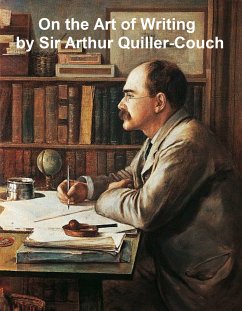
Shakspere & Typography (eBook, ePUB)
Exploring Typography's Influence on Shakespearean Literature
Versandkostenfrei!
Sofort per Download lieferbar
0,49 €
inkl. MwSt.
Weitere Ausgaben:

PAYBACK Punkte
0 °P sammeln!
In "Shakspere & Typography," William Blades delves into the intricate relationship between the renowned playwright William Shakespeare and the art of printing. This scholarly work combines rich historical detail with a meticulous examination of typography's evolution during the Elizabethan era, a time when the printed word began to assume its formidable cultural power. Blades employs a clear and engaging literary style, interweaving primary sources and anecdotes to illuminate the conditions under which Shakespeare'Äôs texts were produced, perpetuated, and ultimately canonized. He meticulousl...
In "Shakspere & Typography," William Blades delves into the intricate relationship between the renowned playwright William Shakespeare and the art of printing. This scholarly work combines rich historical detail with a meticulous examination of typography's evolution during the Elizabethan era, a time when the printed word began to assume its formidable cultural power. Blades employs a clear and engaging literary style, interweaving primary sources and anecdotes to illuminate the conditions under which Shakespeare'Äôs texts were produced, perpetuated, and ultimately canonized. He meticulously maps out the various typographical forms and practices that not only influenced Shakespeare's works but also shaped the broader literary landscape of the period. William Blades was a notable bibliographer and printer; his professional journey and passion for typography significantly inform his insights in this book. Having worked extensively in the printing industry and deeply examined various texts, Blades understood how the physical presentation of literature could affect its reception and understanding. His authoritative knowledge positions him uniquely to explore the nuances of Shakespeare's printing, offering readers a comprehensive view punctuated by personal anecdotes from his scholarly pursuits. "Shakspere & Typography" is an essential read for scholars, students, and enthusiasts of Shakespearean literature and the history of print. Blades offers a thought-provoking perspective that enhances our appreciation for the Bard's work while also providing a greater understanding of the historical context that shaped it. This book is an invaluable resource for anyone seeking to comprehend the intersection of literature and the technology that propagated it.
Dieser Download kann aus rechtlichen Gründen nur mit Rechnungsadresse in A, B, BG, CY, CZ, D, DK, EW, E, FIN, F, GR, H, IRL, I, LT, L, LR, M, NL, PL, P, R, S, SLO, SK ausgeliefert werden.













